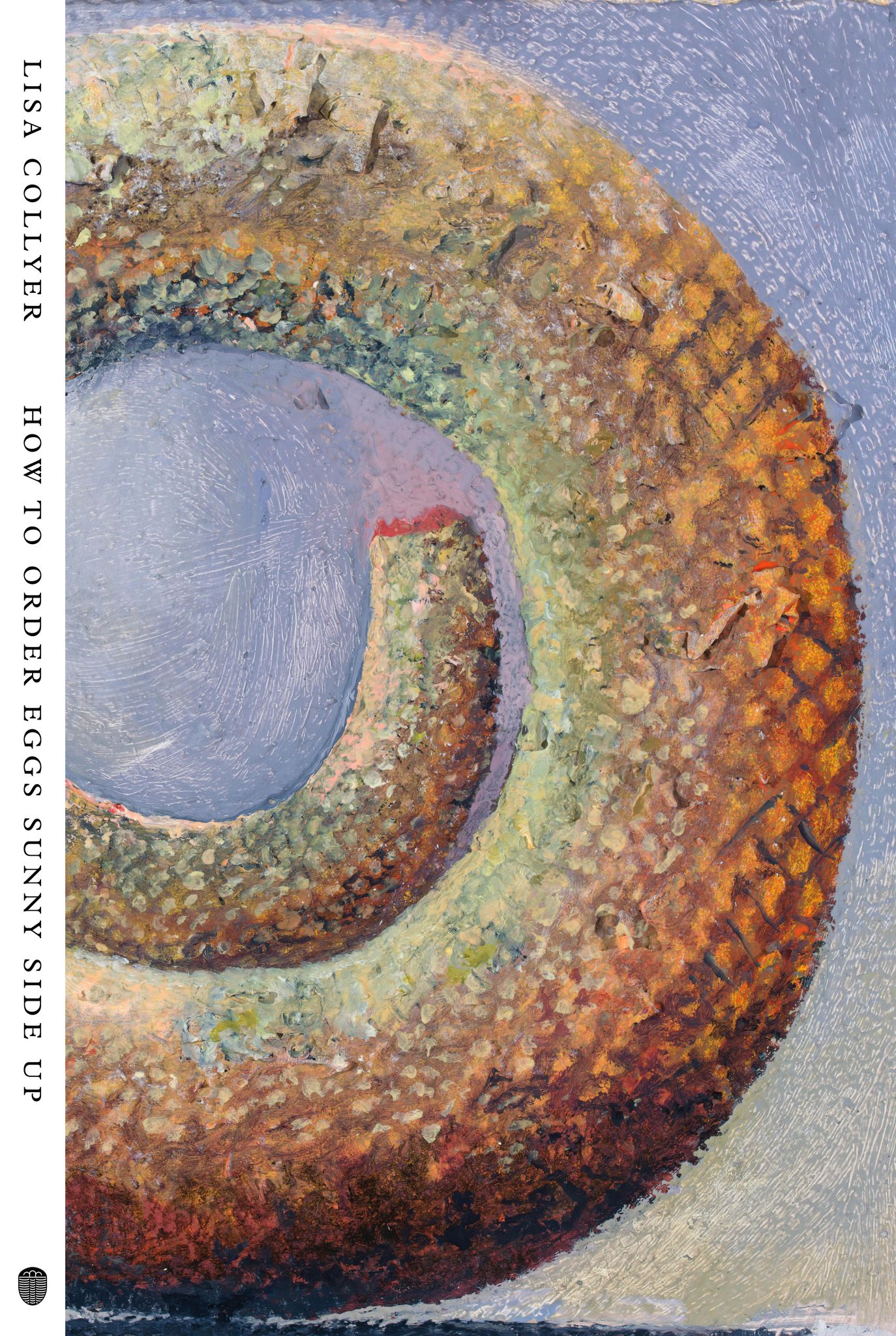 Reviewed by Magdalena Ball
Reviewed by Magdalena Ball
How To Order Eggs Sunny Side Up
By Lisa Collyer
Gazebo Books
ISBN: 9780645633764, 168 pp, September 2023, RRP: $26.95
Lisa Collyer’s How to Order Eggs Sunny Side Up is consistently visceral, rooted in bodily sensation. The collection is ambitious and far ranging, exploring topics like infertility, aging, beauty, desire, the Anthropocene, and the way these things are connected. At 168 pages the book is long for a poetry book, but the poems are on one side of the page only which creates a somewhat luxurious feel, encouraging reflection. The book is divided into five sections, each with a slightly different feel: “Women Squeeze My Breasts to Check How Much Time is Left …”, “And I Evolve Teeth”. “Orbiting Junk of Missing Persons”, “You Can Be Anything with a Tan”, and “A Magic Trick to Slip Through”. As the title makes clear, eggs are like a running theme throughout the book – they take on many different meanings, some poignant and some light-hearted and humorous. There are the ova – female eggs – those that might develop from a blastocyst to an embryo and perhaps a foetus but not a child:
They extract a girl
a gift of gold
Supposed to be mine.
We bury her in blue
—cover in sand
grain-sized pieces. (“Mine”)
The infertility theme is woven beautifully through the book, mingling notions of childlessness with what it means to be a woman in the modern world including the way women are represented, forms of desire, pain, aging, illness and beauty, Eggs take on a range of symbolic roles, beauty, loss and hunger, in the most basic of ways, for the kids of eggs you might order sunny side up once you learn the right language in the right country. The title poem engages with this beautifully in a prose-poem exploration of the origins of words and the way language provides boundaries, structures, openings into spaces that might be otherwise taboo, particularly in the female body:
It takes three days to order eggs sunny side up. I draw a gold sun setting on an island of colour blind. The cook pinpoints the words, mata sari. I taste them individually, in turn. Eye. Cow. Bull’s eye.
Many of the poems use perception that is so deeply depicted it becomes abstract and transformative. The work always begins with the feminine: woman as bird, as insect, earthbound, element:
What if I were glass?
my bones fired sand
fragility brownout
coddle my delicate glaze (“Shatterproof”)
Even when the work is set domestically, in places like the hair dressers, a department store, or even a toilet grimacing over a toxic gut, there is always a sense of discovery and connection, each space and moment part of a broader, bigger connective fascia where the distinctions between people, nature, past and present are often blurred. The poems are rich and diffuse, with a sharp edge that is immediately recognisable, moving along a spectrum of desire, loss, and most poignantly, illness with its inverse conjunction between desire and care:
You’re expected to smile
when the gauze grazes
you wipe away my piss
your sex
Lust lost to catheters rent
shame is catalyst—
Urine-soaked tracksuit pants
bodies touched are seen. (“In Sickness”)
Many of the poems are inspired by or reference other things, from objects like a silver nutmeg grater, newspaper articles, novels like Craig Silvey’s Jasper Jones and See What You Made Me Do by Jess Hill, films Amélie and Breakfast at Tiffanys, other poems like ‘to Nannup’ by Kevin Gillan, ‘Children are the Orgasm of the World’ by Hera Lindsay Bird, ‘Window Shopping at The Taxidermist’s’ by John Kinsella, ‘Diving into the Wreck’ by Adrienne Rich, and even “Denim Day” – a day in which people are encouraged to wear jeans to educate and support victims of sexual violence, one of the many threads running through the book:
In jeans
solidarity surrounds wounded fruit
Hounds’ bare teeth outraged by unjust decree. (“Impossible Jeans”)
The section “And I Evolve Teeth” focuses more heavily on human impacts on ecosystems, biodiversity, and the impact by humans.on the climate. Collyer’s writing has a natural cadence, continuing to root the sense of loss in the physical, connecting personal traumas with global ones, and aligning the Earth with the female body:
We face down
the Anthropocene
sieve breath
through plastic
fragments of death (“To the Sea”)
Later poems are often playful, bringing in elements of irony, wry explorations of the beauty industry, objectification of women, and other tools of oppression that are destroying the planet through the proliferation of overt consumerism:
East of Eden two-by-two strips of grass for Troy to mow and elevated plots. But for now, the mobile dog wash parks and the spray-on-tan entrepreneur reassures, “you can be anything with a tan”. (“Outer Suburban Fog”)
The humour is subtle but pervasive, utilising sound like alliteration, structures, visual poems, cross-outs and haiku, as well as puns, “a swollen Demi Moore”, catlessness, bed bugs, and RUOK. Throughout the book, the poems manage that delicate and tricky balance between being moving and meaningful, wry, humorous and esoteric while still remaining grounded in the everyday. How To Order Eggs Sunny Side Up is a brave and sophisticated debut and it’s easy to see why the book was shortlisted for the Dorothy Hewett Award. This is a rich, dense book that repays multiple readings.